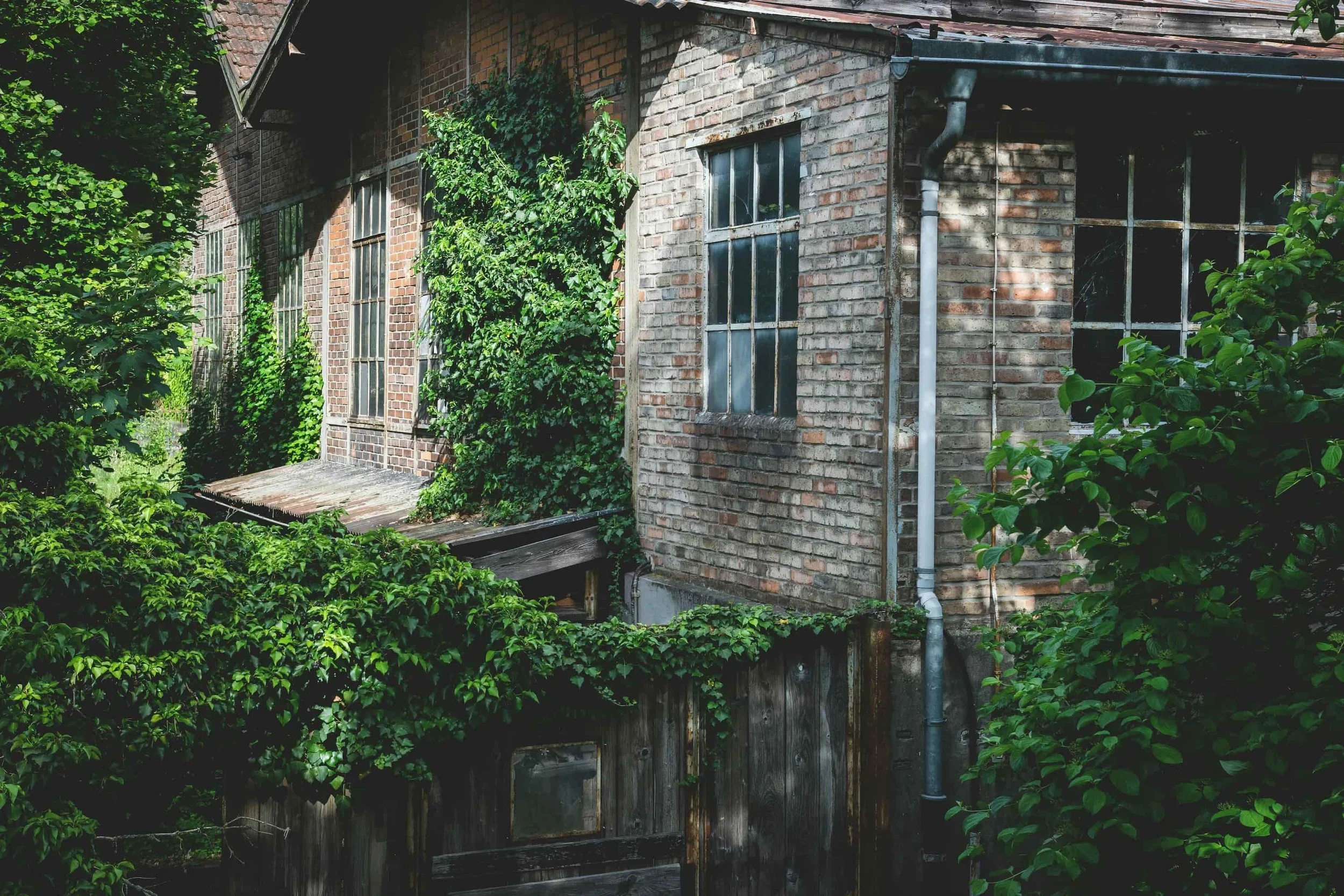
Selling a Probate House
No Repairs, No Agents
Sell My Probate House in Chicago: What You Need to Know
Selling a probate house can feel overwhelming — especially when you’re dealing with emotional stress, legal procedures, and tight timelines. Whether you’re a beneficiary or executor, understanding the probate process is key to making confident decisions.
If you’re thinking, “How can I sell my probate house without delays or added stress?” — you’re not alone. Probate properties often come with complications, from legal red tape to disagreements among heirs. Fortunately, there are options.
Selling a Probate House vs. Selling a House Without Probate
Selling a probate house requires court oversight unless the property is placed in a living trust or other legal structure that avoids probate. When selling a house without probate (for example, via a transfer-on-death deed or trust), the process is typically faster and simpler. But in most cases, estates must pass through probate before the house can be sold.
If you’re exploring options for selling a probate house, it’s important to understand the pros and cons of buying a probate house from a buyer’s point of view. Buyers often face longer timelines, title challenges, and inspection delays — all of which can delay the sale.
On the flip side, probate houses for sale are often priced competitively, attracting cash buyers who specialize in buying probate houses quickly and as-is. This creates opportunities for fast, no-hassle sales without the need for repairs or showings.
At Dello Investments, we work directly with sellers navigating the probate process. Whether you’re selling inherited property, dealing with problems with the probate process, or simply want to avoid delays, we can help streamline the experience.
We also buy probate homes for sale in any condition across Chicago and surrounding areas. You don’t have to clean, repair, or prep the home — we’ll handle everything, including title work and closing costs.
Why Sellers Trust Dello Investments with Probate Homes
Our Streamlined Process
1. Initial Contact: Get in touch with Dello Investments to discuss your situation. We’ll gather basic information about your inherited property and schedule a convenient time for an evaluation.
2. Thorough Evaluation: Our team will visit the property and conduct a comprehensive assessment, considering its condition, location, and market value.
3. Fast Cash Offer: Within 24 hours of our evaluation, you’ll receive a fair, no-obligation cash offer for your house.
4. Quick and Easy Closing: If you decide to accept our offer, we take care of all the necessary paperwork. We can close the deal in as little as seven days, ensuring a smooth and quick transaction.
Need Help Selling a Probate House in Chicago?
Inheriting a property in Chicago often comes with a significant question: What happens to a house during probate? Probate is the legal process of distributing a deceased person’s estate—including real estate. It ensures debts are paid and ownership is transferred correctly, but it can also create delays and confusion for families dealing with grief.
At Dello Investments, we specialize in selling probate houses, even when the situation seems complicated. Whether the home is still going through the courts or you’re dealing with shared ownership, we provide clarity and real options.
You might be wondering: can a house be sold before probate? In some cases, no, the estate must go through probate first. However, in some cases, we may be able to collaborate with the estate executor or attorney to initiate the sale process. If you’re overwhelmed, don’t worry — we handle everything from coordinating with your estate attorney to clearing title issues.
Even if you’re still asking, how long can a house be in probate, or when can you sell a house in probate, we’ll walk you through what’s allowed and when. We also help families determine how to inherit a house without probate, if a trust or other legal structure is in place.
Common Probate Questions
Who owns a house during probate?
During the probate process, legal ownership of the house does not immediately pass to the heirs. Instead, the property becomes part of the estate of the deceased, which is temporarily controlled by the probate court. That means the house is technically owned by the estate itself, not by any individual beneficiaries.
The executor (if there’s a will) or the administrator (if there isn’t one) is appointed by the court to manage the estate. This person is responsible for maintaining the property, paying any ongoing expenses like mortgage payments or taxes, and ensuring the home is eventually distributed or sold according to the law and the decedent’s wishes.
If the house is to be sold, the executor often needs court approval, especially in supervised probate proceedings. Only after the probate process is completed—and all debts, taxes, and legal obligations are settled—will the title legally transfer to heirs or a buyer.
So while heirs may be “entitled” to the property, they do not have legal ownership or control of the house until probate is finalized.
Can you sell a house during probate?
Yes, a house can be sold during probate, but the process typically involves several legal steps and often requires court approval. In most cases, the executor or administrator of the estate is the only person authorized to handle the sale, and they must follow strict probate laws to ensure the transaction is legal and valid.
In states like California or Illinois, the court may need to approve the terms of the sale, especially if the executor doesn’t have what’s called “full authority” under the local probate code. However, in cases where the executor is granted full independent administration authority, they may be able to move forward with the sale without formal court confirmation, as long as they notify all beneficiaries and follow certain notice periods.
The house is usually sold as part of settling the estate’s debts or distributing assets to heirs. Buyers should know that a probate sale may take longer than a standard real estate transaction, due to legal timelines and potential delays.
While it’s possible to sell during probate, it’s always a good idea to work with a probate attorney or experienced real estate professional familiar with the process to avoid missteps and ensure everything is handled properly.
What happens to a house during probate?
When someone dies, any property they owned—such as a house—becomes part of their estate and goes through the probate process. During this period, the house is legally owned by the estate, not by individual heirs. The executor or personal representative (appointed by the court or named in the will) is responsible for managing the property until probate is complete. What actually happens to the house depends on several factors, including the deceased’s will (if there is one), the estate’s financial obligations, and the needs or wishes of the heirs. The executor may decide to:
Maintain the home to preserve its condition while probate is ongoing
Rent it out temporarily to generate income for the estate
Sell the house—often to pay off debts, taxes, or to distribute cash proceeds among heirs
Any sale typically requires court oversight or approval, especially in formal probate proceedings. The property can’t be transferred to heirs or sold until all legal requirements are met, which may include appraisals, public notice of sale, and confirmation hearings, depending on the state.
Throughout the process, the executor must act in the best interest of the estate and ensure all actions follow probate laws and court directives.
How do you avoid probate on a home?
Avoiding probate can help your heirs receive the property faster and with fewer legal complications. Some property owners take steps to avoid probate so their home can transfer more easily after death. Common strategies may include placing the home in a trust, using a transfer-on-death deed (if available in your state), or holding the title with joint ownership and right of survivorship.
Each of these options comes with legal and tax considerations, so it’s important to consult with an estate attorney or real estate professional to choose the right solution for your situation.
What is a probate house?
A probate house is a piece of real estate that belonged to someone who has passed away and is now part of their estate. Before it can be legally sold or transferred to heirs or beneficiaries, it must go through the probate process—a court-supervised procedure that validates the deceased’s will (if one exists) and ensures debts and taxes are settled. Until probate is completed or authority is granted to an executor or administrator, the property cannot be transferred. Probate houses often require special legal steps and timelines that differ from standard real estate sales.
Can a house be sold while in probate?
Yes, a house can often be sold during probate, but specific legal procedures must be followed. In many cases, the executor or administrator of the estate may need to obtain court approval before proceeding with the sale. This is to ensure the sale is fair, transparent, and in the best interest of the estate and its beneficiaries. Some states allow for more flexibility if the executor has what’s called “full authority” under independent administration rules. Once approved, the property can typically be listed, marketed, and sold — even before probate is fully completed. However, timelines and requirements vary by state, so it’s important to proceed carefully.
Can you live in a house during probate?
Yes, it is generally possible for someone to stay in a house during probate, but it depends on several factors. If the deceased allowed a family member or tenant to live in the home before their passing, that arrangement can continue during probate — especially if it doesn’t interfere with the executor’s duties or the estate’s needs. The executor or administrator has the authority to manage the property, including making decisions about occupancy. However, if the occupant isn’t contributing to upkeep or causes conflicts among heirs, the executor may ask them to leave. In some cases, court involvement might be needed if disputes arise. Ultimately, whether someone can stay in the home depends on the estate plan, state laws, and how the executor decides to manage the property.

Ready to Sell a Probate Property in Chicago?
Dealing with a house in probate can feel overwhelming — but you don’t have to navigate it alone. Whether you’re managing the estate of a loved one or simply ready to move forward, Dello Investments makes selling a probate property in Chicago fast and straightforward.
We buy probate houses in any condition, with no fees, no repairs, and no delays — even if the home is still tied up in the probate process or shared among family members. Our team works closely with you to ensure a smooth and respectful sale.
Get started today with a free, no-obligation cash offer.
Call us at 312-975-5557 or click the button below to get started.
Explore More Probate Resources
-

Is it Better to Keep an Inherited House or Sell it?
Not sure what to do with a house you inherited?
This post breaks down the pros and cons of keeping vs. selling — from taxes to maintenance and family dynamics. Make a smart, stress-free decision.
-

Inherited Hoarder House
Inherited a hoarder house in Chicago?
Learn how to handle cleanup, legal issues, and your options for selling as-is — even if the home is packed wall-to-wall with stuff.
-

Understanding Inherited Property Buyout Agreements
Splitting an inherited home with family?
This post explains how buyout agreements work — and what to know if one heir wants to keep the property while others want to sell.

